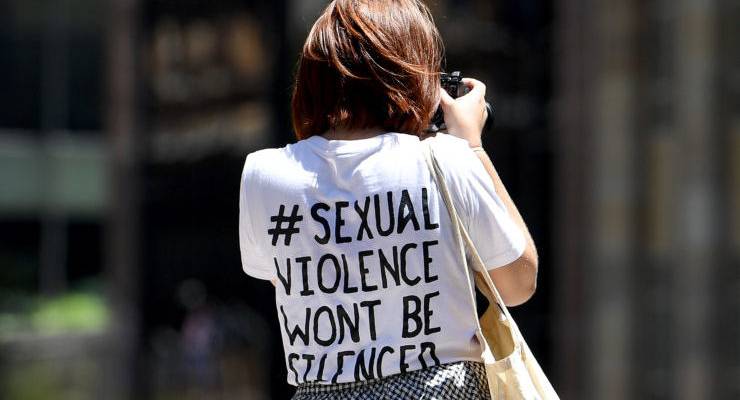
A new report from Australia’s National Research Organisation for Women’s Safety (ANROWS) has found sexual violence is far more prevalent than previously reported, with more than half of women in their 20s reporting having experienced it.
The study, led by researchers from the University of Newcastle, also found that 34% of women in their 40s and 26% of women aged 68 to 73 have experienced sexual violence.
It shows not just how pervasive the problem is, but how Australians’ understanding of abuse is evolving — and also focuses on the lifelong effect abuse has. The report calls for “a broad, consistent definition of sexual violence”.
ANROWS’ chief executive Padma Raman said having a common community understanding of what sexual violence looked like would support victim-survivors in becoming aware of their experience, and could potentially change community attitudes.
“Attitudes are improving, and we can possibly glean [from the study] that more women are feeling comfortable naming behaviour as sexual violence,” she said. But there was a long way to go for survivors to be believed.
The 2017 National Community Attitudes towards Violence against Women Survey showed two in five Australians agreed “it is common for sexual assault accusations to be used as a way of getting back at men”.
“It’s good that we’re having these conversations [around sexual violence], but we need a national reckoning around the seriousness of this problem,” Raman said.
The impact of abuse is lifelong, the report found. Those who experienced it were between 30-45% more likely to have high levels of financial stress, and more likely to report worse physical and mental health, and those who experienced childhood sexual violence were twice as likely to experience sexual violence, domestic violence and physical violence as an adult.
“We need to equip the community to be better able to understand this behaviour and be able to support women to seek support,” Raman said.
“When women do seek support, especially mental health support, they fare better. This actually has financial, economic and health impacts across the community.”
Chair of Rape and Sexual Assault Research and Advocacy Dr Rachael Burgin said the increasing numbers of those who had experienced sexual violence were likely to be partly due to people reflecting back on incidents — showing how important it was to allow subjective experiences to be included in surveys.
“The important thing is that we are giving people the tools to say: ‘That unwanted sex actually was violence.’ That’s important … We’re not the ones who get to tell them that something was sexual violence,” Burgin said.
The report found generational differences in understanding, personal feelings about disclosing violence and the amount of time since the violence occurred affected survey responses.
Coming to terms with the fact an experience was assault was overall a positive thing, Burgin said, especially when understanding the lifelong impacts of trauma: “Trauma happens to you, whether you notice it or not. Hopefully, it gives people the language to talk about it and encourages people to seek help.”
She was wary of uniform definitions of sexual violence, especially in the legal sphere: “The focus shouldn’t be on a national definition. The focus should be on understanding the benefits and limitations of the language from a survivor’s perspective … and knowing what language survivors identify with.
“Let’s not put this power in the hands of the government. Let’s put the power in the hands of survivors to define their own experiences.”
If you or someone you know is impacted by sexual assault or violence, call 1800RESPECT on 1800 737 732 or visit 1800RESPECT.org.au.








Seems odd that this important article has not had any comments – how can that be?